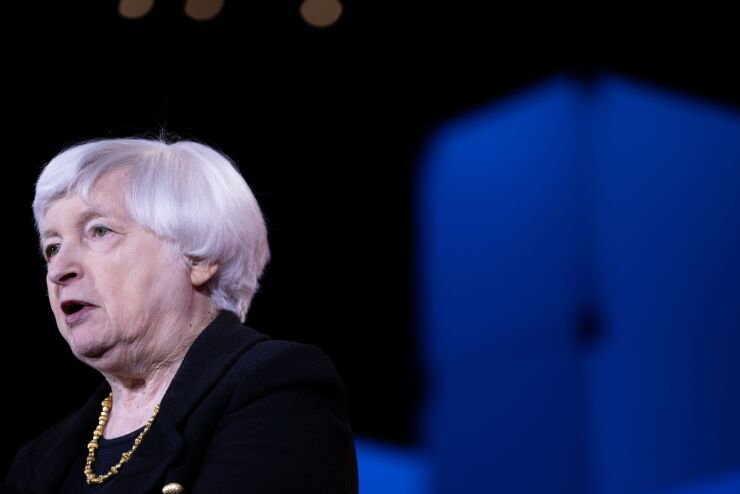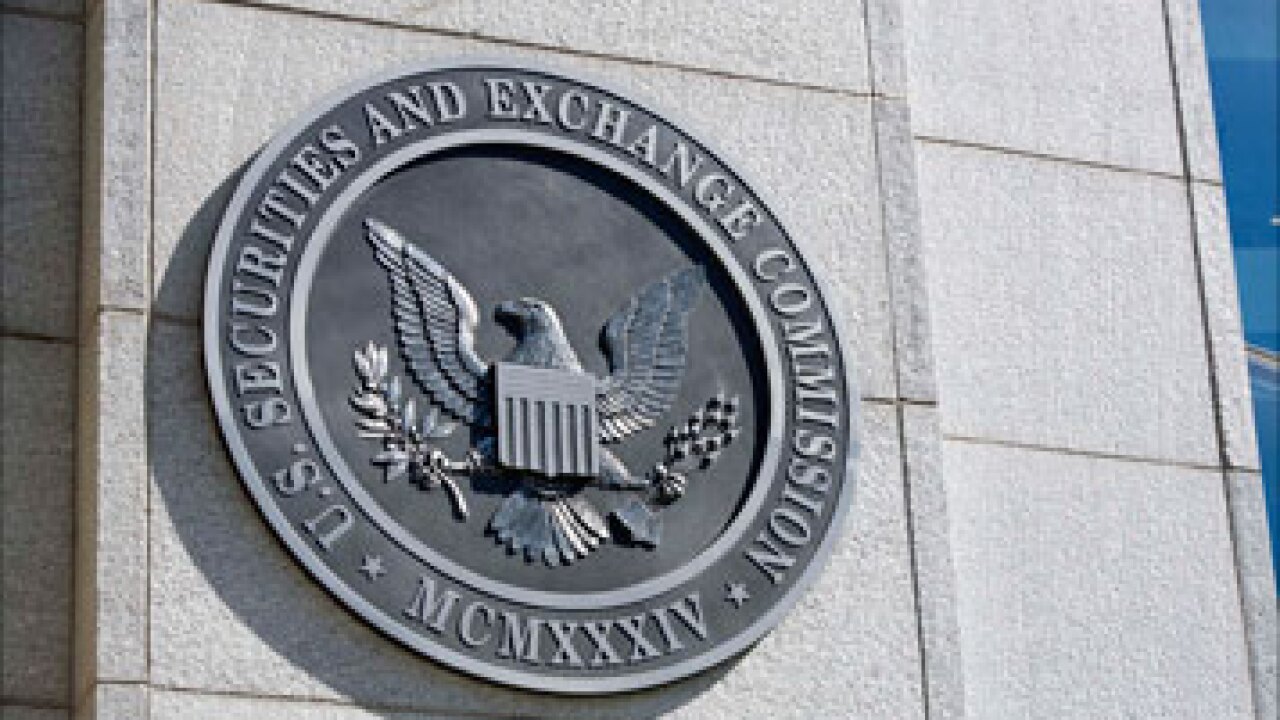Treasury Secretary Janet Yellen said that a second Biden administration would seek to retain tax reductions enacted by former President Donald Trump that apply to those earning less than $400,000.
That figure has been a core part of President Joe Biden's tax philosophy since he took office, and helped to shape the administration's previous proposals. Parts of Trump's 2017 tax-cut package will expire in 2025, and Yellen told reporters Wednesday that, should Biden win re-election in November, he would seek individual tax-cut extensions only for those earning less than $400,000 a year.
"The president is clearly focused on tax fairness," she said. "He's going to be focused on making sure that tax cuts disappear for those corporations, and we're not negotiating new tax breaks for wealthy individuals."

Yellen highlighted earlier this month that new revenue sources would have to be found to pay for tax cuts that were extended. She also cautioned that retaining all of the reductions would lead to "
Tax policy will be among the top economic priority items in a second Biden administration, Yellen said Wednesday in answering reporters' questions ahead of a keynote speech she's delivering in Chicago on Thursday.
IRS funding
Equipping the Internal Revenue Service to collect what's owed, making companies and rich Americans pay more and sticking to the tax incentives built into Biden's signature climate bill are all crucial to driving long-term economic growth and distributing its benefits to more Americans, Yellen said.
Taxes could prove an even more pronounced flashpoint than usual in this year's presidential contest, which is setting up to be a rematch of Biden versus Trump. Trump
For Yellen, the tax-related disputes between the two candidates go well beyond the looming fight over 2017 rate adjustments. They mark out a gaping divide in views over how to spur economic growth and even whether tax laws should be vigorously enforced.
With a provision attached to the climate bill passed in 2022, Biden won $80 billion to modernize the IRS over 10 years and beef up enforcement of taxes owed by companies and rich Americans.
Crucial investments
Democrats have already
"The Republicans seem like they want to under-resource the IRS so that it doesn't have the wherewithal either to collect taxes that are due or to leave Americans with the feeling that the agency they interact with the most is a competent organization," she said. "That is very dangerous."
Raising taxes on companies and high earners, she said, is also crucial for funding investments in infrastructure, labor-force development and tax breaks for strategic industries like semiconductors.
"This is not trickle-down economics," she said. "It's investing in ways that, really, everybody knows we need to invest but just haven't."
Income gain
In Chicago Thursday, Yellen is laying out the Biden administration's pitch on how the president's economic strategy is paying off.
"It's important for people to understand there is an economic agenda that is focused on the middle class," she said. It's "not just a set of isolated bills that were passed."
Biden policies have helped spur a 37% increase in median wealth between 2019 and 2022, adjusted for inflation, she said in her prepared remarks Thursday in Chicago.
Yellen cited a new Treasury analysis showing that today's median-earning worker can "buy the same goods and services as in 2019, with nearly $1,400 left over to save or spend." A Treasury spokesman said the statistics were based on the Treasury's
Yellen's Chicago appearance comes hours after the government reported a 3.3% gain for annualized gross domestic product last quarter,
The larger question is whether her message will resonate with voters, especially in swing states like Wisconsin, which Yellen will visit Friday.
Recent public opinion polls show Trump holding a





